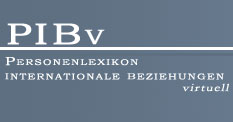Waltz, Kenneth N.
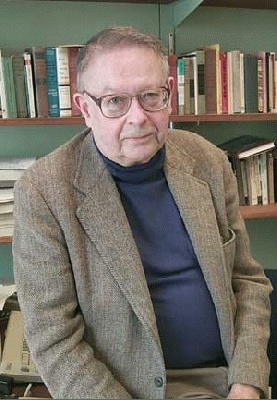 Kenneth Neal Waltz
Kenneth Neal Waltz
* 8.6.1924 in Ann Arbor, Michigan, USA
† 13.5.2013 in Washington D.C.
text
text
text
text
text
US-amerikanischer Politikwissenschaftler, Begründer des Neorealismus (struktureller Realismus)
Werdegang
Studium am Oberlin College, Ohio und an der Columbia University, New York; Spezialisierung auf Politische Philosophie und Internationale Beziehungen
1948: A.B. am Oberlin College, Ohio
1950: M.A. an der Columbia University, New York
1954: Ph.D. an der Columbia University, New York (Dissertation: Man, the State, and War. New York: Columbia University Press 1959.)
1953-1957: Lehre an der Columbia University, New York
1957-1966: Lehre am Swarthmore College, Pennsylvania
1966-1971: Lehre an der Brandeis University, Massachussetts
1971-1994: Lehre an der Berkeley University, Kalifornien
1987-1988: Präsident der American Political Science Association
Gastdozenturen:
1978: Australian National University
1982, 1991, 1996: Peking University
1991, 2001: Fudan University
1991-1992: United States Air Force Academy
1992-1993: London School of Economics & Political Science
2002: University of Bologna
Ehrendoktorwürden:
1995: Copenhagen University
2002: Oberlin College, Ohio
2003: Nankai University
Auszeichnungen
1990: Heinz Eulau Award für seinen Aufsatz Nuclear Myths and Political Realities in der American Political Science Review
1999: James Madison Award der American Political Science Association
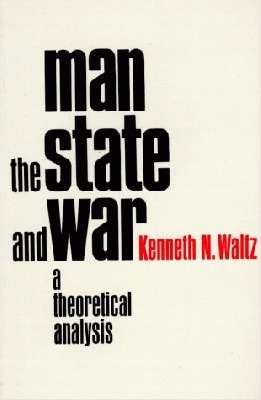 Primärliteratur
Primärliteratur
Bücher:
Man, the State, and War. New York: Columbia University Press 1959. (Dissertation)
Foreign Policy and Democratic Politics: The American and British Experience. London: Longmann 1968.
mit Steven L. Spiegel
Conflict in World Politics. Cambridge: Winthrop Publ. 1971.
Theory of International Politics. Reading, Mass: Addison-Wesley 1979.
The Spread of Nucelar Weapons: More May Be Better. London: International Institute for Strategic Studies 1981.
mit Scott D. Sagan
The Spread of Nuclear Weapons. A Debate. New York: W.W. Norton and Co. 1995.
Realism and International Politics. London: Routledge 2008. (Sammlung seiner wichtigsten Aufsätze)
Herausgeberschaften
mit Robert Art
The Use of Force: International Politics and Foreign Policy. Boston: Little, Brown and Co. 1971.
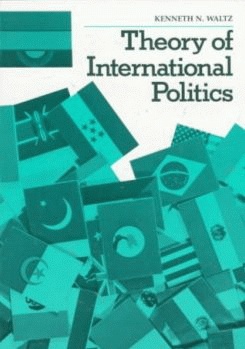
Aufsätze:
Reason, Will and Weapons. In: Political Science Quarterly 74.1959, 3. S. 412-419.
Kant, Liberalism, and War. In: American Political Science Review 56.1962, 2. S. 331-340.
The Stability of a Bipolar World. In: Daedalus 93.1964, 2. S. 881-909.
Electoral Punishment and Foreign Policy Crises. In: Rosenau, James (Hrsg.): Domestic Sources of Foreign Policy. New York: Free Press 1967. S. 263-293
Force, Order and Justice. In: International Studies Quarterly 11.1967, 3. S. 278-283.
The Politics of Peace. In: International Studies Quarterly 11.1967, 3. S. 199-211.
A Strategy for the Rapid Deployment Force. In: International Security 5.1981, 4. S. 49-73.
Letter to the Editor. In: International Organization 36.1982, 3. S. 679-681.
Balance of Power. In: Salmon, Jeffrey/O’Leary, James/Shultz, Richard
(Hrsg.): Power, Principles and Interests: A Reader in World Politics.
Lexington, Mass.: Ginn Press 1985.
 Reflections on Theory of International Politics. A Response to My Critics. In: Keohane, Robert O. (Hrsg.): Neorealism and Its Critics. New York: Columbia University Press 1986, S. 322-345.
Reflections on Theory of International Politics. A Response to My Critics. In: Keohane, Robert O. (Hrsg.): Neorealism and Its Critics. New York: Columbia University Press 1986, S. 322-345.
Laws and Theories. In: Keohane 1986. S. 27-46.
Anarchic Orders and Balances of Power. In: Keohane 1986. S. 98-130.
The Origins of War in Neorealist Theory. In: Journal of Interdisciplinary History 18.1988. S. 615-628.
The Origins of War in Neorealist Theory. In: Journal of
Interdisciplinary History 18.1988, 4 (Sonderband: The Origin and
Prevention of Major Wars). S. 615-628.
Nuclear Myths and Political Realities. In: American Political Science Review 84.1990, 3. S. 731-745.
America as a Model for the World? A Foreign Policy Perspective. In: PS. Political Science and Politics 24.1991, 4. S. 667-670.
The Emerging Structure of International Politics. In: International Security 18.1993, 2. S. 44-79.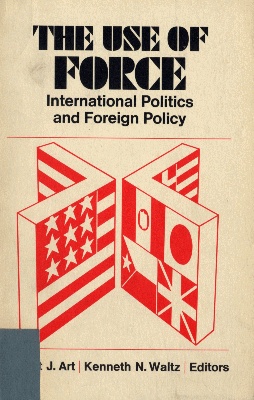
mit Elizabeth Pond
International Politics, Viewed from the Ground. In: International Security 19.1994, 1. S. 195-199.
Evaluating Theories. In: American Political Science Review 91.1997, 4. S. 913-917.
Globalization and Governance. In: PS. Political Science and Politics 32.1999, 4. S. 693-700.
Structural Realism after the Cold War. In: International Security 25.2000, 1. S. 5-41.
mit Robert O. Keohane
The Neorealist and His Critic. In: International Security 25.2000, 3. S. 204-205.
Sekundärliteratur
Campbell, Craig: Glimmer of a New Leviathan: Total War in the
Realism of Niebuhr, Morgenthau and Waltz. New York: Columbia University
Press 2003.
Griffiths, Martin: Fifty Key Thinkers in Internatiuonal Relations. London: Routledge 1999. S. 46-50.
Masala, Carlo: Kenneth N. Waltz: Einführung in seine Theorie und Auseinandersetzung mit seinen Kritikern. Baden-Baden: Nomos, 2005; zweite überarb. u. erw. Aufl. 2014.
Masala, Carlo: Der letzte Neorealist? Nachruf auf Kenneth Waltz. In: Welttrends 21.2013, Nr. 91, S. 95-97.
Meier, Walser, Reinhard: Neorealismus ist mehr als Waltz. Der Synoptische Realismus des Münchener Ansatzes. In: Zeitschrift für Internationale Beziehungen 1.1994, 1. S. 115-126.
Neuss, Beate; Kenneth N. Waltz, Theory of International Politics. In: Kailitz, Steffen (Hrsg.): Schlüsselwerke der Politikwissenschaft. Wiesbaden: VS Verlag 2007. S. 481-485.
Schörnig, Niklas: Neorealismus. In: Schieder, Siegfried/Spindler, Manuela (Hrsg.): Theorien der Internationalen Beziehungen. Opladen: Leske und Budrich 2003. S. 61-88.
Telhami, Shibley: Kenneth Waltz, Neorealism, and Foreign Policy. In: Security Studies 11.2002, 3. S. 158-170.
Weblinks
Diskussion mit Kenneth N. Waltz an der Berkeley University, Februar 2003
Nachruf des Arnold A. Saltzman Institute of War & Peace Studies, Columbia University, New York
SG
